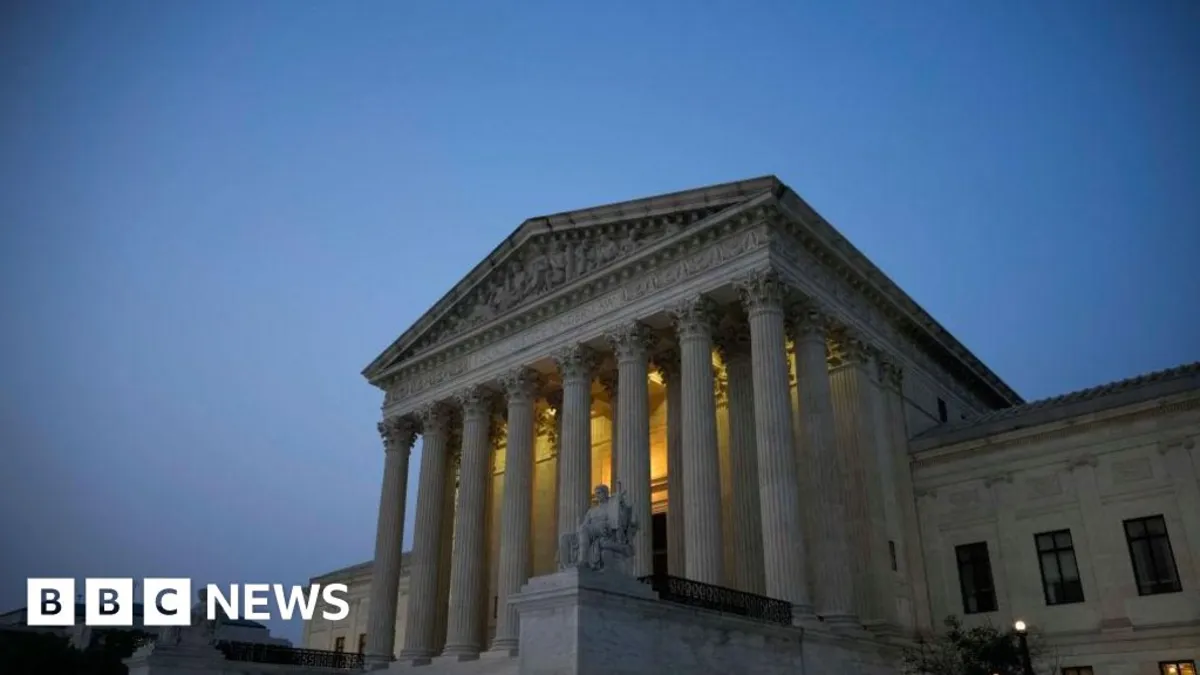
Former President Donald Trump is set to bring his campaign against birthright citizenship before the US Supreme Court, a pivotal moment that could significantly influence his immigration policies and broader agenda. The Supreme Court will hear arguments on Thursday regarding whether lower court judges have the authority to block presidential orders on a national scale.
Immediately upon returning to the White House in January, Trump signed an executive order aimed at terminating birthright citizenship for children born in the US to undocumented immigrants. This move was swiftly challenged, with three federal judges issuing injunctions to prevent the order from taking effect. These judicial actions reflect a broader trend of courts intervening against Trump's executive directives.
Trump argues that the lower courts overstepped their jurisdiction by issuing nationwide injunctions. If the Supreme Court sides with him, it could pave the way for the president to utilize executive orders more freely to fulfill campaign promises without needing congressional consent, thus facing fewer judicial obstacles. This case is particularly significant as it marks an unusual May hearing for the Supreme Court, with no clear timeline for a ruling.
Many legal experts contend that the president lacks the authority to abolish birthright citizenship, which is enshrined in the 14th Amendment of the US Constitution. This amendment guarantees that all persons born or naturalized in the United States are citizens. Trump's interpretation of the phrase "subject to the jurisdiction thereof" raises questions about whether it applies to children of undocumented immigrants or foreign nationals temporarily residing in the US.
Federal judges in Maryland, Massachusetts, and Washington have issued nationwide injunctions that block the enforcement of Trump's order. In response, the Trump administration posits that these courts have exceeded their authority. The government has characterized these universal injunctions as increasingly prevalent since the beginning of the current administration, prompting discussions among the justices about their legality.
The Supreme Court case is rooted in three distinct lawsuits filed by immigration advocates and 22 states. The Trump administration is urging the court to limit the scope of injunctions to only those immigrants specifically named in the lawsuits or to the states involved, which would enable the government to partially implement Trump's immigration policies amidst ongoing legal disputes.
The elimination, even partially, of birthright citizenship could have far-reaching consequences for tens of thousands of children born in the US. One lawsuit claims that this change could result in a generation of individuals facing second-class status, as many of them have only ever known life in the United States. Immigration lawyer Alex Cuic from Case Western Reserve University emphasizes that removing their citizenship could render these children undocumented or even stateless, with uncertain prospects for repatriation to their parents' countries.
As the Supreme Court prepares to hear this significant case, the outcome could redefine the landscape of birthright citizenship and reshape immigration policy in the United States. The implications of this ruling extend beyond legal precedent; they may affect the lives of countless individuals and families across the nation.